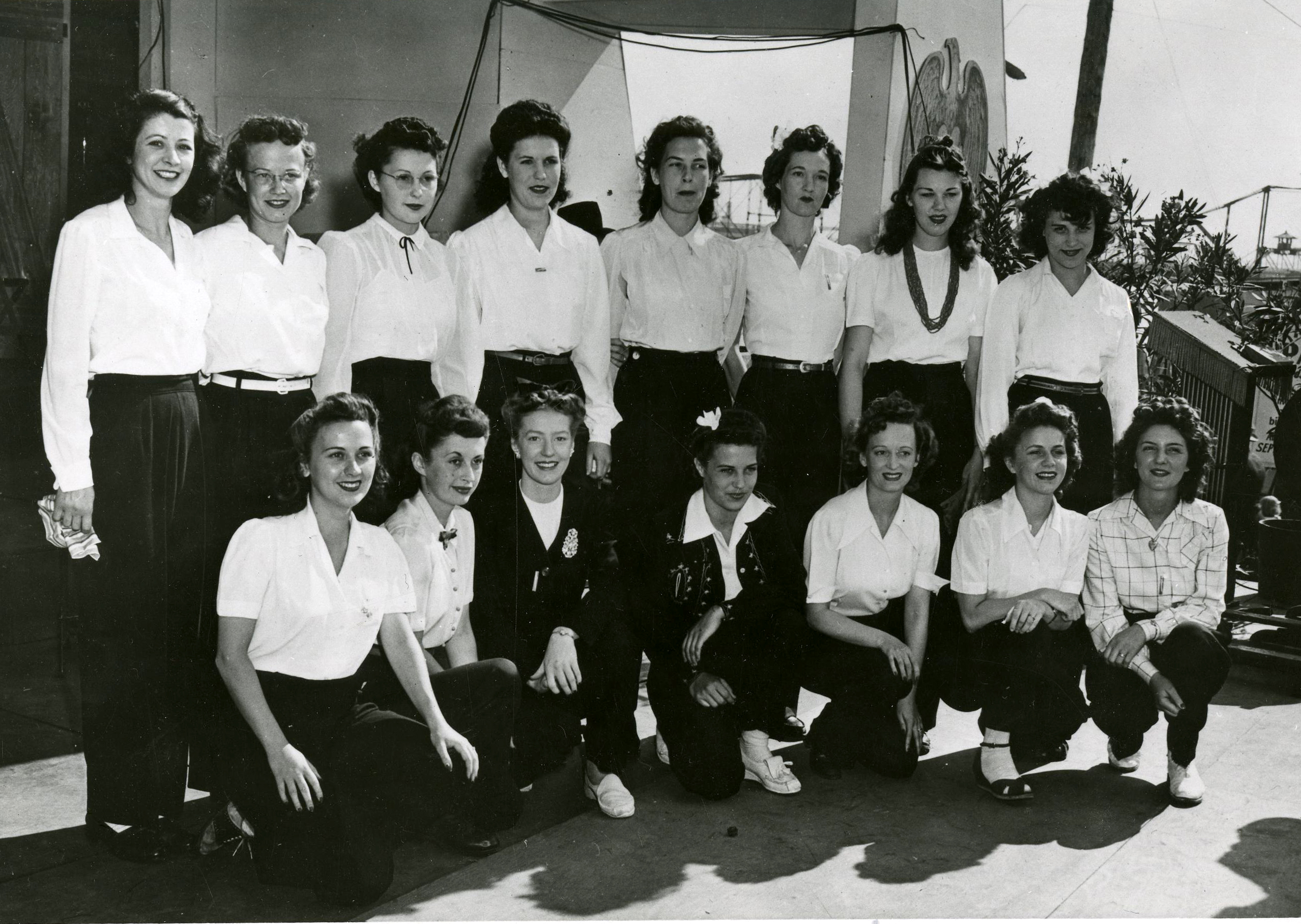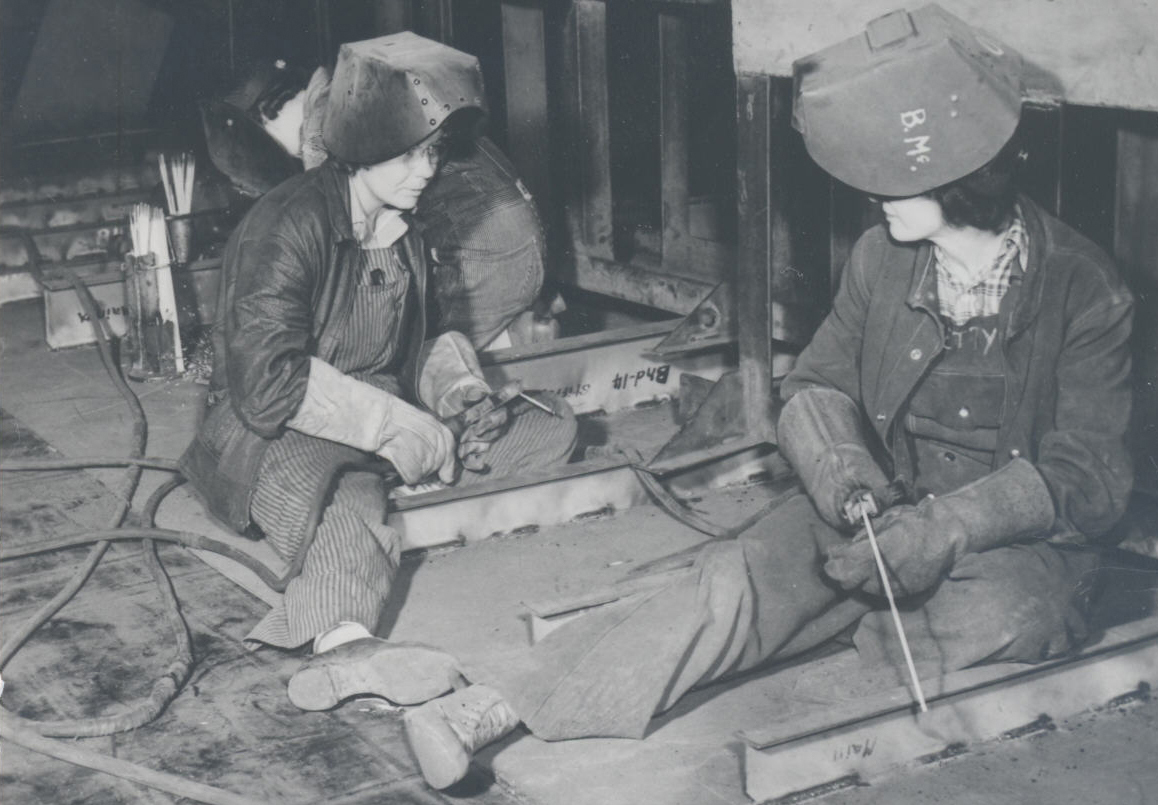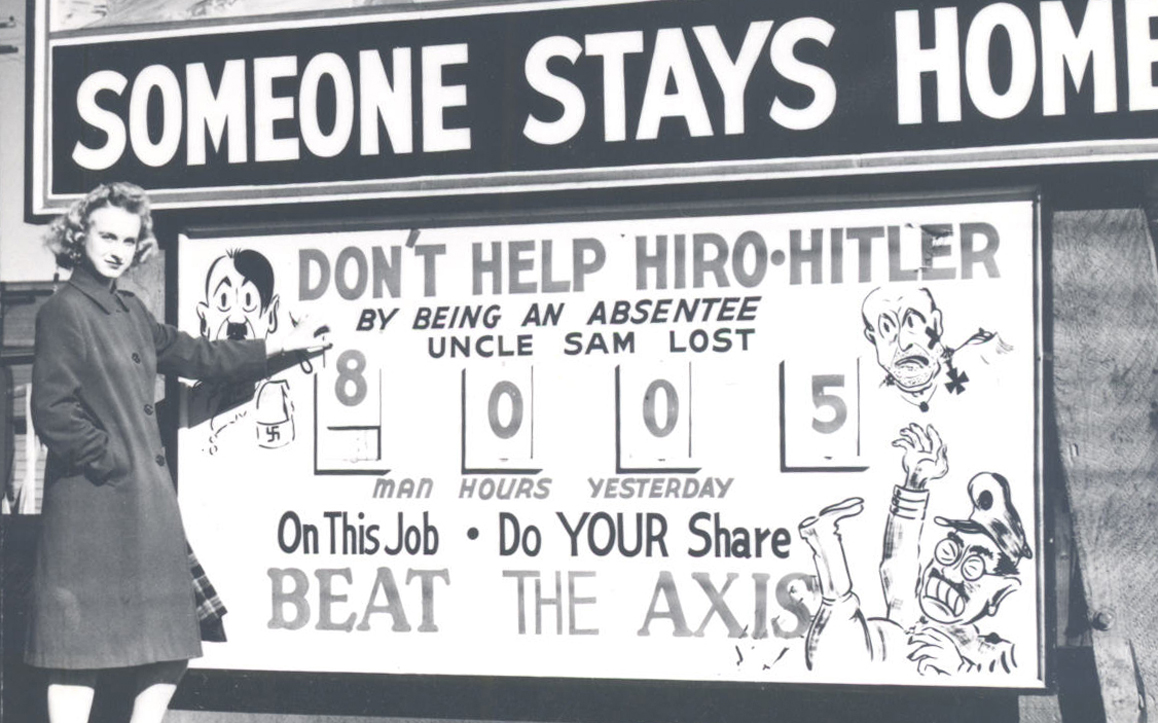Media Collection: In the Shipyards
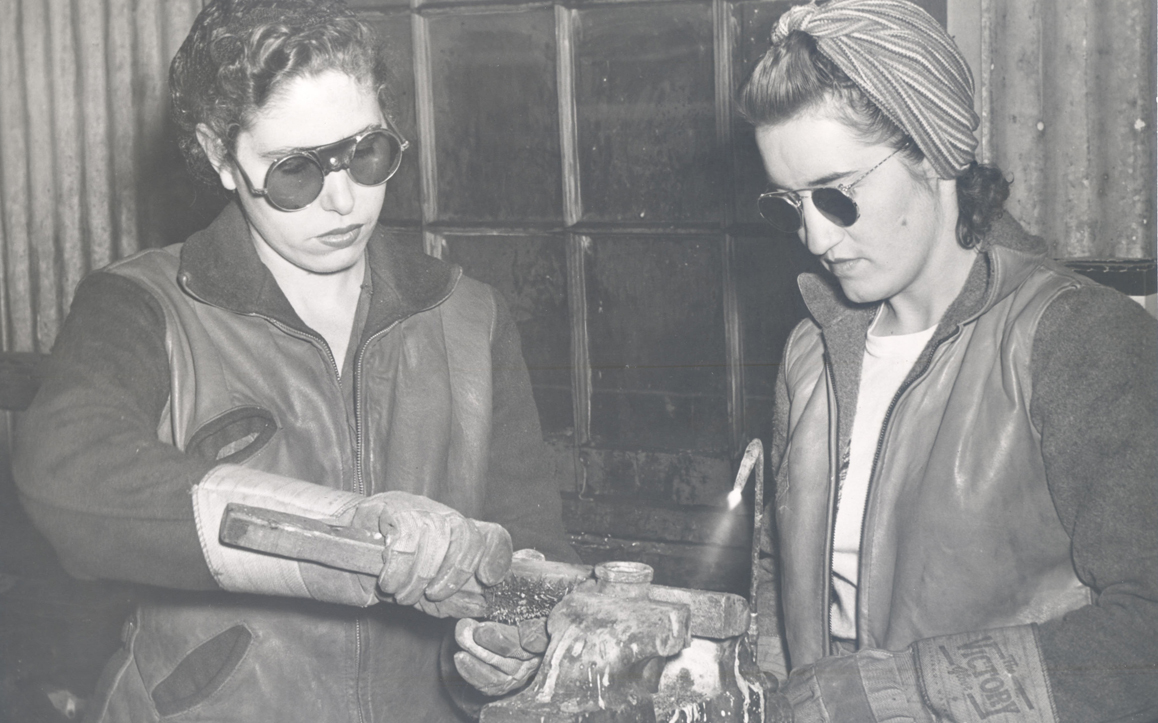
Two women work together at the Albina Engine & Machine works. Albina Engine & Machine Works collection, org lot 512
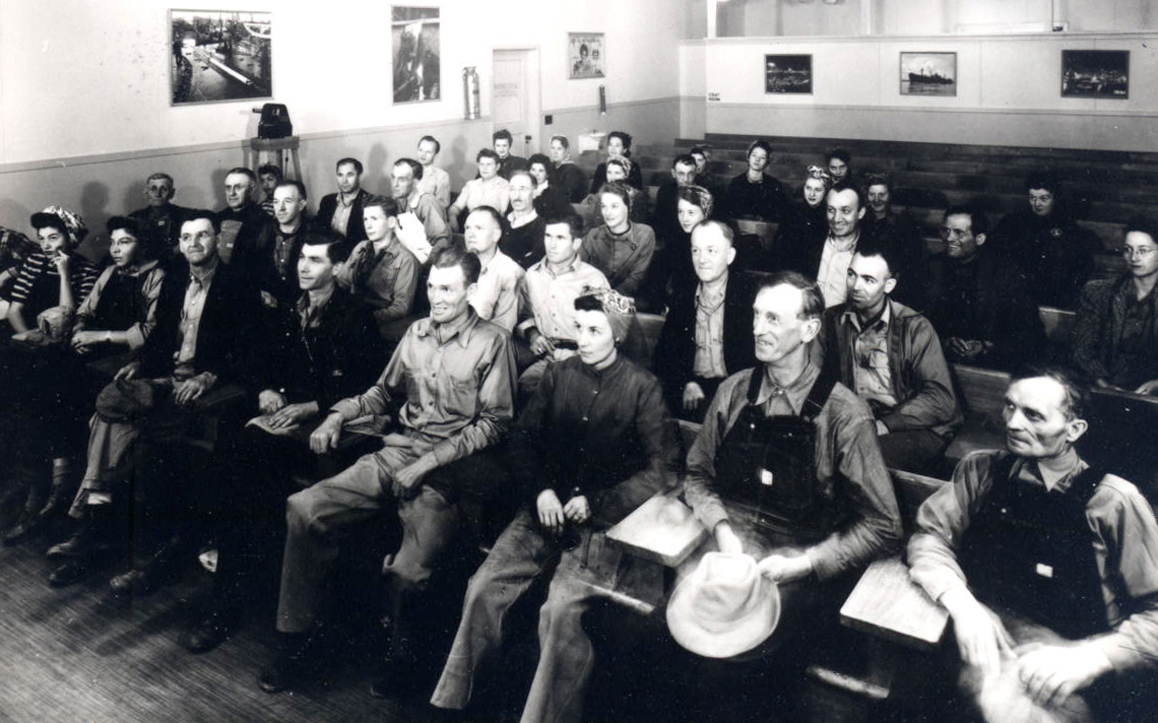
New workers attend an orientation at the Oregon Shipbuilding Corporation auditorium. Oregon Shipbuilding Coll., 023349
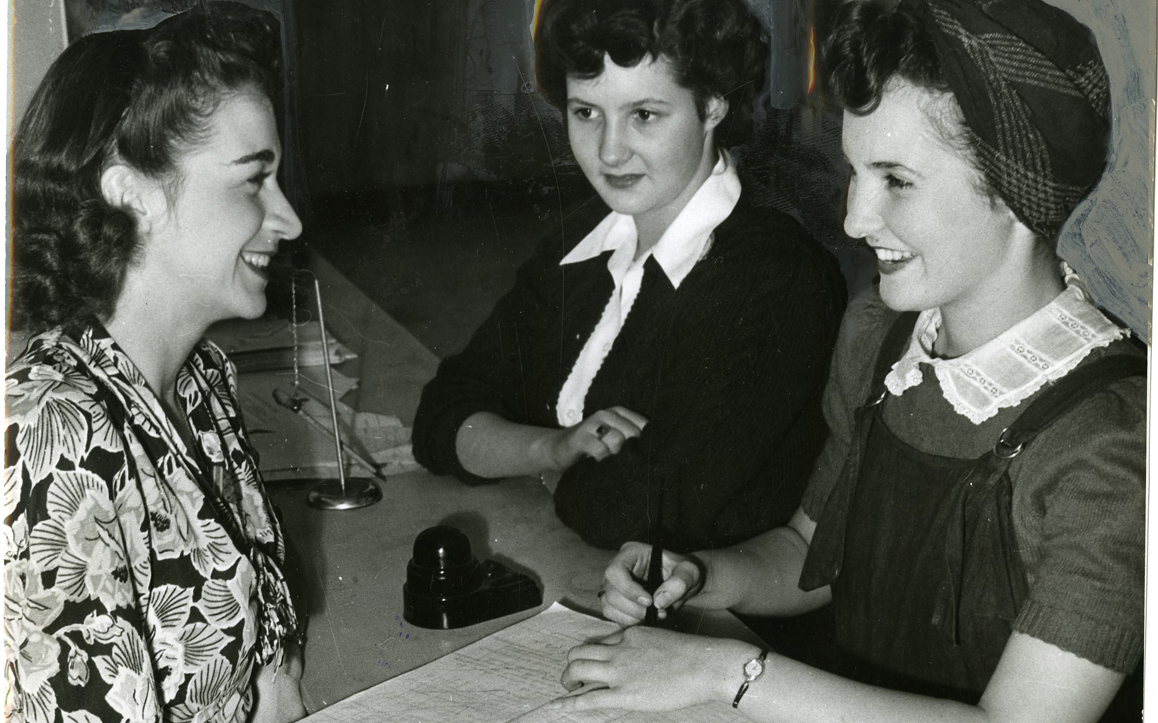
Rosalie Holder (left) signs up Betty Langston and Louise Brundage, duplicator's helpers for Albina Engine & Machine Works, for the "no work--no woo" campaign. Women and men in the company agreed not to date fellow employees who failed to turn in full timecards. Albina Engine & Machine Works collection, org lot 512
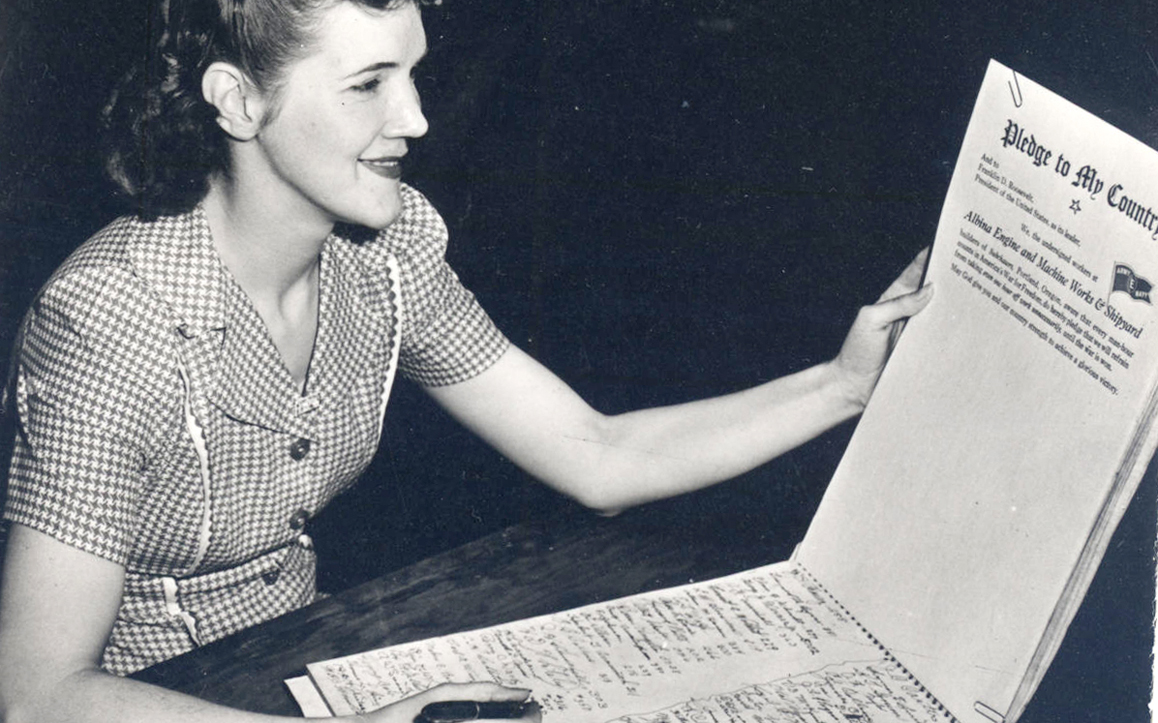
Fieger worked for Albina Engine & Machine Works in Portland, and she poses here for a publicity photo. In an effort to prevent absenteeism on the job, which cost the company time and money, Albina followed the example of other wartime industries and asked its workers to sign a national pledge to turn in full timecards. Oregon Journal Collection, 020093
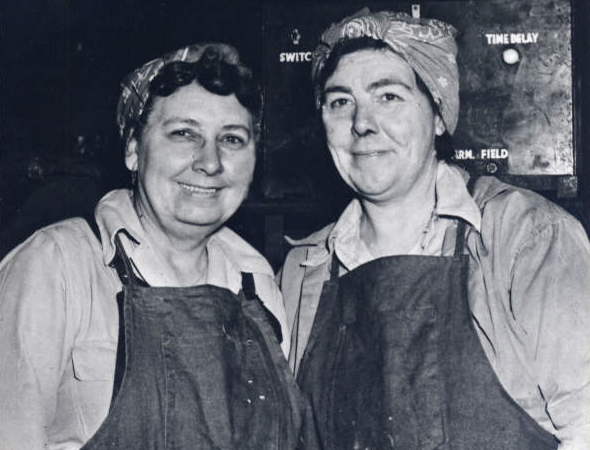
Reheard and Bolen worked for the Kaiser shipyards on Swan Island as flame planer operators. Oregon Journal collection, 000830
